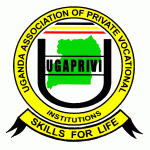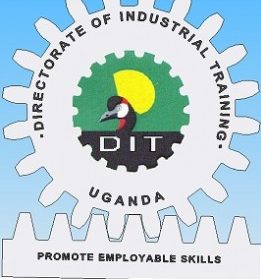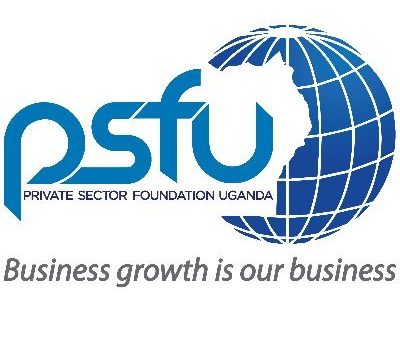
Directorate of Industrial Training
Ministry of Education and Sports
Promote Employable Skills


About Worker’sPAS
The Worker’sPAS (“Worker’s Practically Acquired Skills”) is a document that certifies the skills and competences of an individual for a particular occupation. The Worker’sPAS outlines the expected skills and competence the holder can acquire in the occupation. Therefore as a new skill/ competency is acquired, it is assessed and certified in the holder’s Worker’sPAS. The Worker’sPAS provides a certification opportunity to transfer skills acquired informally into the formal qualification system, thereby enhancing the link between informal and formal training. Furthermore, the Worker’sPAS is designed to reflect the holder’s employment career and recognizes continuous training and lifelong learning. This certification will tackle the major constraint of recognition of non formal and informally acquired skills especial in the informal sector. The linkage between this certification to the formal education structure will also go a long way in ensuring that employees and workers can upgrade their skills in line with the national qualification framework.
National Re cognition
The Worker’sPAS is recognized within the Uganda Vocational Qualifications Framework (UVQF) standards of the Directorate of Industrial Training (DIT). The BTVET Act 2008 mandates the DIT to assess and certify formal and informal skills training. This initiative of validation of non-formal and informal practices through the Worker’sPAS in Uganda is to being implemented by a consortium of key private sector stakeholders led by Swiss contact and Private Sector Foundation Uganda (PSFU) in partnership with UGAPRIVI, DIT and other stakeholders.

Questions & Answers
Who is the Worker’sPAS for?
• For people who wish to communicate their skills and competences
• For job seekers to support their job applications
• For workers to prove their capacities
• For employers to understand the skills and competences of job seekers
• For clients to receive value for money
What are the benefits of the Worker’sPAS?
• The Worker’sPAS will help the owners to convey their skills and competences in an effective way
• The Worker’sPAS supports employability and career advancement
• The Worker’sPAS strengthens the links between education/training and business/industry
• The Worker’sPAS is a guide for lifelong learning and tailored learning opportunities
What is the Worker’sPAS?
• The Worker’sPAS is a small booklet approved by the Directorate of Industrial Training (DIT) that recognizes and certifies your skills and competences in your particular trade/ occupation
• Each of your skills and competences can be added – a whole life long!
• The Worker’sPAS shows what you can!
Worker’s PAS? What does it mean?
The Worker’sPAS means “Worker’s Practically Acquired Skills’. It is a document that recognizes and certifies your skills and competences in your particular trade/occupation. Each of your skills/competencies acquired can be added into the Worker’sPAS – a whole life long. The Worker’sPAS shows what you can to your employers and clients
Why do I need a Worker’s PAS?
The Worker’sPAS is meant for people who never had the chance to pass a formal vocational education. It provides an opportunity for you to prove your skills that you acquired informally; either at your working station, daily labour activities, in an internship, or even just through learning by doing. The Worker’s PAS enables recognition of the entire scope of knowledge and experience held by you, irrespective of the context where your learning originally took place.
And how does this help me?
You can show what you can to your employers and clients; they will gain confidence in your capacities which results in better job and income opportunities. The Worker’sPAS proves your skills and a competence while at the same time helps you to understand the training areas that you can still work on.
So how does this certification system work?
The Worker’sPAS is officially recognized by the Directorate of Industrial Training (DIT) and is issued on the basis of Trade Specific Assessment and Training Packages (ATPs).The Assessment Package is also used in the formal vocational training system and consists of basically two major parts:
PART I: The “Occupational Profile”:
The ATP contains the “Occupational Profile ”that gives information on what a person is expected to do and accomplish in a specific work life. This profile qualifies WHAT a person has to do in the job.
PART II: The” Assessment Instruments”:
The ATP contains the “Assessment Instruments ”in the form of practical test items that will be used to assess whether a person complies with the requirements specific to each trade. The test items qualify the HOW and/or HOW WELL a person must do the job.
What would be a practical scenario?
For example: Mr. Okello has worked for 5 years as a motorcycle mechanic in Mukono and he gained skills and experience in maintenance and repair of motorcycles based on his daily work.However he lacks a documentation of his skills and abilities. Because of this, he cannot favourably compete where documentation is required; his customers can question his abilities and may not trust his capacity. This also affects his negotiations for better pay in the event he is employed by another person. He decides to apply for the Worker’s PAS to overcome these constraints. He can choose between several items he wants to be assessed in, such as:
• Dismantling, cleaning, checking and reassembling cylinder head
• Repair of brakes, tyres and wheels
• Repair and service cooling system
• Dismantle, assemble and tune a 4-stroke engine
• Repair of fuel system…
The Worker's PAS targets;
• Workers in the informal sector
• Early school leavers
• Unemployed youth
• Apprentices
• Any other interested individuals

Our Partners
Swisscontact
Swisscontact creates opportunities. Swisscontact provides the poor with access to markets, information, financial services, and ways to earn a living. Improved vocational training and workforce development programs, targeted support for small and medium-sized enterprises, and value-adding environmental projects provide them with a chance to change their lives for themselves. The goal is to find employment or successfully start a small business.


European Union
The EU is a unique economic and political partnership between 27 European countries that together cover much of the continent. It was created in the aftermath of the Second World War. The first steps were to foster economic cooperation: the idea being that countries who trade with one another become economically interdependent and so more likely to avoid conflict. Since then, the EU has developed into a huge single market with the euro as its common currency. What began as a purely economic union has evolved into an organisation spanning all policy areas, from development aid to environment.
Uganda Association of Private Vocational Institutions
The Uganda Association of Private Vocational Institutions UGAPRIVI is an umbrella organization for Private Training Institutions. Its mission is to enhance unity, development and ensure facilities of collaborations and networks within Private Vocational Training Institutions and other actors in partnership.


Directorate of Industrial Training
This is a semi – autonomous Directorate headed by a Director assisted by two Deputy Directors each in charge of a Department and a Principal Assistant Secretary in charge of Administration. The structure of the Directorate shall comprises of the following; - Department of Qualification Standards - Department of Assessment and Certification - Administrative Support Division
Private Sector Foundation Uganda
PSFU is Uganda’s apex body for the private sector. It is made up of 166 business associations, corporate bodies and the major public sector agencies that support private sector growth. Since its founding in 1995, PSFU has served as a focal point for private sector advocacy as well as capacity building and continues to sustain a positive dialogue with Government on behalf of the private sector. Right from its inception PSFU has been Government’s implementation partner for several projects and programmes aimed at strengthening the private sector as an engine of economic growth. Such programmes include; the implementation of the Business Uganda Development Scheme (BUDS), the BUDS-Energy for Rural Transformation (ERT) programme, Second Private Sector Competitiveness Project (PCSP II) and advising government on positive policy reforms. In addition, PSFU also manages a five year cost sharing project funded to a tune of 13 Million Pounds by UK–Department for International Development project (UK-DFID). The funding is channeled through the Office of the Prime Minister to support economic recovery under the Peace Recovery and Development Programme (PRDP).






Plot 97/99 Jinja Road/Corner, 3rd Street.
P. O. Box 20050 Lugogo,
Kampala, Uganda.